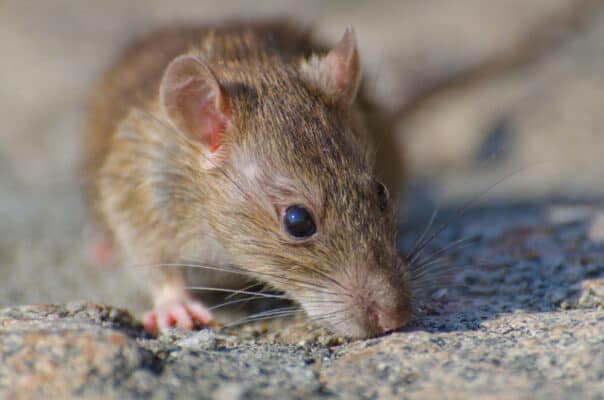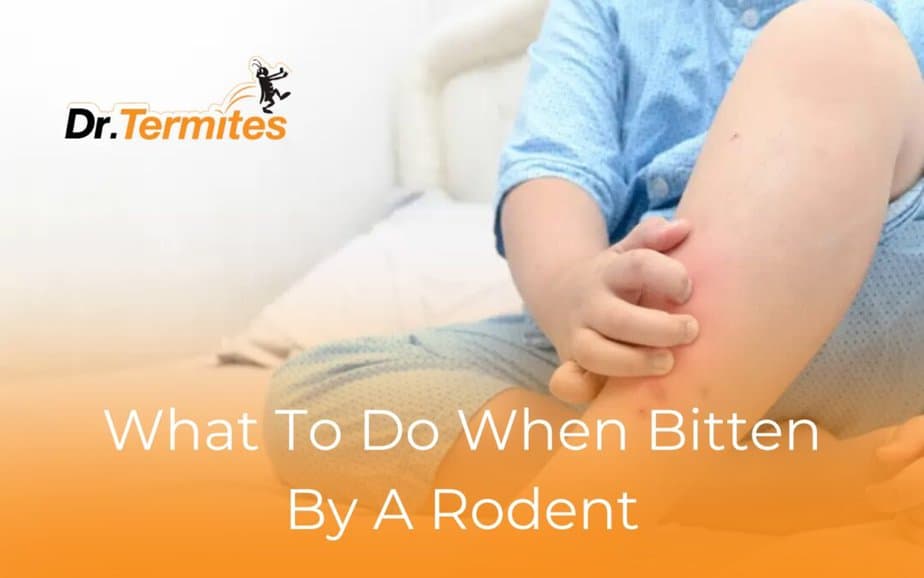Though rare, rodent attacks nonetheless cause great concern. Should a rodent bite you, you should respond right away. Illnesses carried by rats, mice, and other rodents might be passed on via bites. Although these bites normally cause little immediate danger, incorrect treatment might cause infections or other health issues. We’ll go over the actions you should take right away after a rodent bite in this post. We’ll also talk about how routine pest control treatments may help stop future occurrences of this kind.
What to Do Right Away Following a Rodent Bite
To reduce the danger of illness, quick response is essential after a rodent bite. The steps you should take are as follows:
Clean it Completely
Clean the bite site first. Wash the cut right away with fresh water and soap. This helps the rodent eliminate any debris or pathogens that could have entered. Use lukewarm water and a mild soap. To stop further harm, don’t scrape the area too hard.
Disinfect the Bite
After cleansing the cut, sanitize the surrounding area with an antiseptic. This reduces the chance of infection and maintains the incision clean all through the healing process. The bite might be treated right away with an antiseptic solution using iodine or hydrogen peroxide. Make sure the antiseptic can safely heal open wounds.
Put Pressure on the Wound to Stop Bleeding
Use a fresh towel or gauze pad to gently push on any bleeding from the bite. Until the bleeding stops, keep it there. Although most rat bites don’t result in significant bleeding, it’s crucial to stop any bleeding very once to prevent consequences.
Cover the Injury
Apply a sterile bandage to the wound when the bleeding has stopped and the area has been cleaned. By doing this, the region is shielded from dirt and further infections. At least once a day, or more often if it becomes damp or soiled, replace the bandage.
Seek Medical Attention
While many rodent bites heal on their own, sometimes you should consult a doctor. Should the bite get red or swollen, or if you have fever or discomfort, these might point to an infection. If you haven’t received a tetanus shot in the last ten years or if the rodent involved was being abnormally hostile or unwell, you should also see a healthcare provider.
Infection Symptoms to Look Out for
Some symptoms may not show up right away, and infections from rodent bites may happen. Watch for any of the following symptoms on the wound:
- Swelling or redness around the bite
- Warmth in the vicinity
- discharge of pus originating from the wound
- Chills or fever
- Enhanced discomfort at the location
Consult a physician immediately if you have any of these symptoms. To stop the illness from spreading, a medical practitioner could recommend antibiotics or take other actions.
How to Prevent Future Rodent Bite Injury
Although quick treatment is crucial, long-term preventative plans should also be given great thought. Homes may become targets for rodent infestations, particularly in colder months when they flee inside. These guidelines can lower your future risk of getting bitten by a rodent:
Seal Your Home’s Entry Points
Rodents may fit through tiny openings or crevices near pipes, doors, and windows. Look for any entrance points in your house and seal them. This entails repairing any holes in the walls or floors and inspecting the vicinity of the points where utility lines enter the property.

Eliminate Food Sources
Food often attracts rodents. Food should be stored in airtight containers, and spills and crumbs should be cleaned up immediately. Pet food should be stored in sealed containers and not left out overnight. Rodents will find your house less tempting if there is less food available.
Establish Baits and Traps
Use bait or set traps if you’ve seen indications of rodent activity. Set traps in places where rats are likely to go, such attics, under appliances, and along walls. To guarantee the greatest results, get professional rodent control if you’re not sure how to place traps or handle vermin on your own.
Frequent Pest Management to Avoid Infestation
By taking precautions to lessen the possibility that rats will enter your house in the first place, you may minimize rodent attacks. The likelihood of an infestation may be considerably reduced by scheduling regular pest control treatments. A qualified rodent control expert can inspect your house, identify any trouble spots, and put rodent-repelling measures in place. Frequent pest control inspections may provide peace of mind and help avoid future rodent problems.
Prompt Measures and Prolonged Prevention of Rodent Bite Injury
Being bitten by a rodent is not something that many people consider, but it is critical to understand how to address the situation if it occurs. Clean, disinfect, and monitor the wound for symptoms of infection. If necessary, get medical help. To prevent such accidents, seal your house and limit food sources. Regular pest treatment should be the last step in preventing future rodent-related health problems. Staying proactive reduces your chances of meeting rodents and protects you from bites.
Trust Dr. Termites‘ skilled pest control services to shield your house from rodent infestations and bites. Get in touch with us right now for a comprehensive assessment and specialized solutions to maintain the safety and rodent-free status of your house. This is where your tranquility begins!































